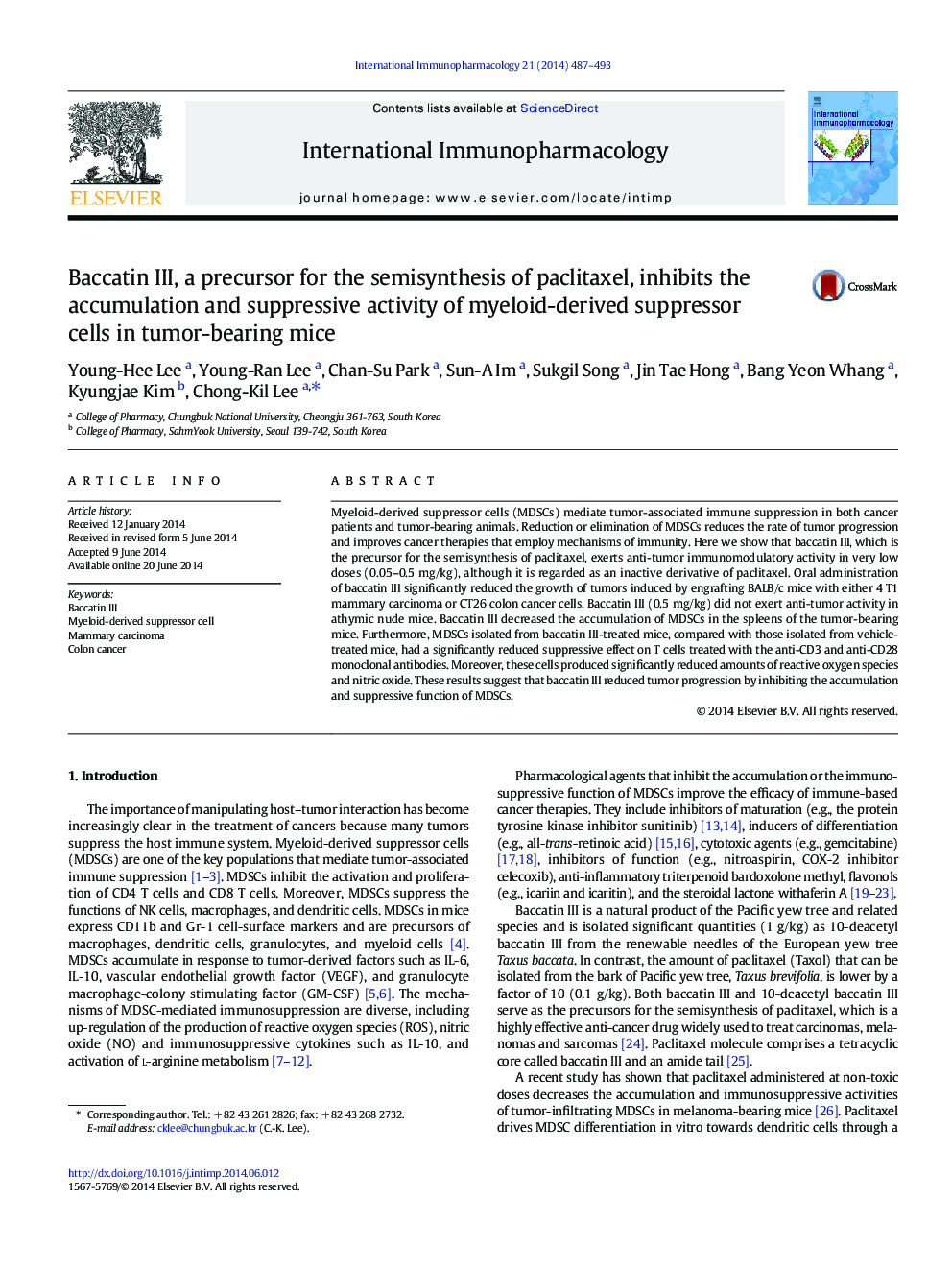| Article ID | Journal | Published Year | Pages | File Type |
|---|---|---|---|---|
| 5832792 | International Immunopharmacology | 2014 | 7 Pages |
â¢Baccatin III reduces the growth of 4 T1 or CT26 tumors in mice.â¢Baccatin III decreases the accumulation of MDSCs in the tumor-bearing mice.â¢Baccatin III reduces the suppressive functions of MDSCS.
Myeloid-derived suppressor cells (MDSCs) mediate tumor-associated immune suppression in both cancer patients and tumor-bearing animals. Reduction or elimination of MDSCs reduces the rate of tumor progression and improves cancer therapies that employ mechanisms of immunity. Here we show that baccatin III, which is the precursor for the semisynthesis of paclitaxel, exerts anti-tumor immunomodulatory activity in very low doses (0.05-0.5Â mg/kg), although it is regarded as an inactive derivative of paclitaxel. Oral administration of baccatin III significantly reduced the growth of tumors induced by engrafting BALB/c mice with either 4 T1 mammary carcinoma or CT26 colon cancer cells. Baccatin III (0.5Â mg/kg) did not exert anti-tumor activity in athymic nude mice. Baccatin III decreased the accumulation of MDSCs in the spleens of the tumor-bearing mice. Furthermore, MDSCs isolated from baccatin III-treated mice, compared with those isolated from vehicle-treated mice, had a significantly reduced suppressive effect on T cells treated with the anti-CD3 and anti-CD28 monoclonal antibodies. Moreover, these cells produced significantly reduced amounts of reactive oxygen species and nitric oxide. These results suggest that baccatin III reduced tumor progression by inhibiting the accumulation and suppressive function of MDSCs.
